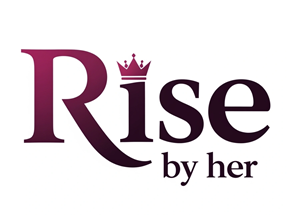In today’s rapidly evolving professional landscape, women continue to break barriers and rise to leadership roles across industries. However, the journey to career success can still present unique challenges, especially as women navigate the demands of work-life balance, gender biases, and underrepresentation in leadership positions. With 2025 bringing new opportunities and transformations in the workforce, it’s essential for ambitious women to equip themselves with the right tools, strategies, and mindset to thrive.
This article will share 10 powerful career advice tips for women aiming for success. Whether you’re looking to climb the corporate ladder, enhance your leadership skills, or build a strong professional network, these actionable insights are tailored to help you unlock your full potential. From embracing continuous learning to finding mentors who can advocate for you, these tips will empower you to not only succeed but excel in your career in 2025 and beyond.
Let’s dive into the strategies that will help you achieve your professional goals and pave the way for a more inclusive and successful future for women in leadership.
Embrace Continuous Learning and Skill Development
In a world where industries evolve overnight, staying stagnant is not an option. Continuous learning is essential for women who want to stay competitive, seize new opportunities, and step into leadership roles confidently. It empowers you to adapt, innovate, and remain relevant in any professional setting.
How to Develop In-Demand Career Skills
Building your professional toolkit doesn’t require a return to school full-time. There are flexible, accessible ways to keep learning at your own pace:
- Take online courses and certifications through platforms like Coursera, LinkedIn Learning, or edX.
- Attend industry-specific events such as webinars, conferences, or local meetups to network and grow.
- Consume expert content regularly: books, newsletters, podcasts, or blogs that sharpen your thinking.
- Join professional groups or mentorship circles to learn collaboratively and gain new perspectives.
Supporting Insight
According to LinkedIn Learning, professionals who consistently upgrade their skills are nearly 50% more likely to be promoted or land better opportunities.
Investing in your own growth isn’t just a career strategy, it’s a form of self-empowerment. Make continuous learning part of your routine, and you’ll be prepared to lead with confidence in any era.
Cultivate a Powerful Professional Network
Networking is an indispensable tool for career advancement, especially for women striving to break through to leadership roles. A robust professional network creates avenues for mentorship, collaboration, and opportunities that might otherwise remain out of reach. Both online communities, such as LinkedIn and industry-specific forums, and offline interactions at conferences, seminars, and local meetups, form the backbone of an effective network.
Building a strong network begins with actively engaging with peers and industry leaders. Here are some actionable tips:
- Leverage social media: Create a compelling profile on LinkedIn and participate in groups that focus on your industry. Share valuable insights, comment on posts, and connect with influential professionals.
- Attend Industry Events: Regularly participate in conferences, seminars, and workshops. Face-to-face interaction can leave a lasting impression and help forge meaningful relationships.
- Join Professional Associations: Becoming a member of organizations dedicated to women in business provides access to exclusive events, mentorship programs, and networking opportunities.
- Follow Up and Maintain Connections: After meeting new contacts, follow up with a personalized message. Consistent communication strengthens relationships and keeps you on their radar.
Studies consistently show that effective networking is a critical factor in accelerating career growth for women, offering increased visibility and direct access to emerging opportunities. By investing time and effort into building your network, you not only enhance your personal career prospects but also contribute to a supportive community that fosters collective success.
Focus on Developing Leadership Skills
Developing leadership skills is a crucial step for women who aspire to take on influential roles in their careers. Leadership isn’t limited to job titles, it’s about taking initiative, inspiring others, and driving positive change within an organization. Whether you’re managing a team, leading a project, or mentoring colleagues, every experience builds your capacity as a leader.

How Women Can Cultivate Leadership Skills
To stand out as a leader, women professionals should intentionally seek opportunities that challenge and grow their capabilities:
- Lead projects or cross-functional teams to gain practical leadership experience.
- Enroll in women-specific leadership development programs offered by business schools or professional organizations.
- Act as a mentor or coach to junior colleagues, this enhances both communication and confidence.
- Participate in management training or executive education programs to learn strategic thinking and decision-making.
- Practice self-reflection and emotional intelligence, both of which are vital traits in effective leadership.
Supporting Insight
Studies confirm that women with well-rounded leadership abilities are significantly more likely to reach executive positions and make measurable organizational impact. According to Harvard Business Review, women often score higher than men in key leadership skills like collaboration, initiative, and integrity.
Leadership is something you build. By consistently developing your leadership skill set, you position yourself not only for promotions but for lasting influence in your field.
Prioritize Work-Life Balance
In today’s demanding professional landscape, achieving work-life balance is more than a luxury, it’s a necessity for sustainable success. For women navigating career advancement while managing personal responsibilities, setting clear boundaries and prioritizing well-being can make all the difference.
Why Work-Life Balance Matters
Without balance, burnout becomes inevitable. Studies show that chronic stress not only hampers productivity but also leads to health issues, disengagement, and career dissatisfaction. For women aiming for long-term growth, maintaining harmony between professional and personal spheres is essential.
Practical Strategies to Maintain Balance
- Set Clear Boundaries: Establish working hours and stick to them. Avoid responding to emails or calls outside of this time unless it’s urgent.
- Use Flexible Work Arrangements: Advocate for hybrid schedules, remote options, or adjusted hours that better suit your lifestyle.
- Schedule Time for Self-Care: Prioritize regular breaks, hobbies, and downtime. Protecting your energy is part of staying effective.
- Delegate and Ask for Help: At work and at home, don’t be afraid to ask for support. Effective delegation can reduce mental load.
- Learn to Say No: Not every opportunity is worth your energy. Be selective to avoid overcommitment.
Be Assertive in Negotiating Salaries and Promotions
Self-advocacy is a key skill every ambitious woman must master. Despite growing awareness, the gender pay gap still exists in many industries, and women often hesitate to negotiate for what they deserve. Being assertive about your worth is not only fair, but also necessary for career growth and long-term financial empowerment.

Why Negotiation Matters
Failing to negotiate salaries and promotions can lead to a lifetime of income inequality. Research from Glassdoor and Lean In reveals that women are less likely than men to ask for raises, which contributes to persistent wage gaps.
How to Confidently Negotiate Your Value
- Do Your Research: Use tools like Glassdoor, Payscale, or LinkedIn Salary Insights to benchmark your worth in the market.
- Practice Your Pitch: Be ready to communicate your accomplishments, metrics, and the value you bring to the company.
- Use Data and Confidence: Frame your request using specific results and contributions. Use phrases like “based on my performance and market trends…”
- Don’t Apologize: Asking for what you’ve earned is not selfish, it’s strategic. Speak with clarity and purpose.
- Negotiate the Full Package: Besides salary, discuss benefits like remote work, vacation time, bonuses, or professional development budgets.
Seek Out Mentors and Sponsors
Building a successful career requires more than hard work; it also requires guidance and advocacy. Mentorship and sponsorship are two powerful tools that can significantly impact women’s professional growth, helping them unlock leadership opportunities and navigate the complexities of their careers.
Understanding the Difference Between Mentors and Sponsors
- Mentors: A mentor is someone who provides guidance, wisdom, and support based on their own experiences. They help women navigate challenges, make informed decisions, and build skills.
- Sponsors: A sponsor goes a step further, actively advocating for a woman’s advancement within the organization or industry. Sponsors use their influence to open doors, recommend women for high-visibility projects, and ensure their talents are recognized.
How to Find the Right Mentors and Sponsors
- Identify Potential Mentors: Look for individuals who have experience in areas where you want to grow. They should be someone whose career you admire and who can offer valuable insights.
- Build Relationships with Potential Sponsors: Sponsors often emerge from professional relationships. Engage with leaders in your field, showcase your strengths, and demonstrate your leadership potential.
- Be Proactive: Don’t wait for mentors or sponsors to approach you. Reach out to them, express your interest in learning from them, and make it clear that you value their expertise.
- Leverage Professional Networks: Join organizations and attend conferences where potential mentors and sponsors are likely to be present.
Stay Resilient and Embrace Failure as a Learning Opportunity
In the pursuit of career success, setbacks and failures are inevitable. However, resilience (the ability to bounce back and learn from challenges) is what separates those who thrive from those who falter. For women aiming for leadership roles, resilience is not just a trait; it’s a critical skill that can transform obstacles into stepping stones for future success.
Why Resilience Matters
Failure can feel discouraging, but it’s an essential part of growth. Research shows that women who embrace challenges with resilience are more likely to persist, adapt, and ultimately succeed in the workplace. Viewing failure as a learning opportunity allows you to reflect, adjust, and come back stronger.
Tips for Building Resilience
- Reframe Your Mindset: Instead of viewing failure as a setback, try to see it as a lesson. Ask yourself, “What can I learn from this experience?“
- Develop a Growth Mindset: Cultivate the belief that skills and abilities can be developed over time with effort and perseverance. This mindset enables you to approach challenges with confidence.
- Surround Yourself with Supportive People: A strong support system of friends, mentors, or colleagues can offer guidance and encouragement when times get tough.
- Take Care of Yourself: Physical and mental well-being are foundational to resilience. Regular exercise, mindfulness practices, and adequate rest help you stay focused and energized.
- Keep Setting Goals: Use setbacks as motivation to adjust your goals and develop new strategies. Staying focused on your long-term vision helps you overcome temporary difficulties.
Build Your Personal Brand
In today’s competitive job market, a strong personal brand is essential for standing out and attracting the right opportunities. For women professionals, personal branding is not just about what you do, but how you present yourself to the world, both online and offline. Whether you’re aiming for a promotion, a new job, or speaking engagements, your personal brand plays a pivotal role in shaping your career trajectory.

Why Personal Branding Matters
A well-crafted personal brand helps you define your unique value proposition and makes you memorable in your industry. It’s an effective tool for building credibility, visibility, and trust, which can lead to exciting career opportunities, partnerships, and even invitations to speak at events or conferences.
How to Build Your Personal Brand
- Define Your Value: Start by identifying your unique strengths, passions, and areas of expertise. What sets you apart from others in your field?
- Create an Online Presence: Use platforms like LinkedIn, personal websites, and blogs to showcase your accomplishments, expertise, and thought leadership. Share insightful content relevant to your industry.
- Be Consistent: Ensure that your messaging, tone, and professional image are consistent across all platforms (whether it’s your social media profiles, website, or in-person interactions).
- Network Strategically: Attend events, workshops, and conferences to meet people who can help amplify your brand. Networking both online and offline is key to expanding your reach.
- Engage with Your Audience: Regularly engage with your audience by commenting, sharing posts, and creating meaningful interactions. Engaging with others helps strengthen your brand and build relationships.
Develop Emotional Intelligence (EQ) for Effective Leadership
Emotional intelligence (EQ) is a key trait for successful leaders, especially for women in leadership roles. It’s the ability to understand and manage your own emotions, as well as recognize and influence the emotions of others. Leaders with high EQ are more effective in navigating complex workplace dynamics, building strong teams, and fostering a positive work environment.
Why Emotional Intelligence is Crucial for Women in Leadership
Emotional intelligence enables women to build trust, connect with their teams, and lead with empathy. In leadership, emotional intelligence fosters collaboration, reduces conflicts, and enhances decision-making. Women who hone their emotional intelligence can effectively navigate challenging situations, understand team needs, and inspire loyalty and respect.
Key Components of Emotional Intelligence
- Self-awareness: Understanding your emotions and their impact on your decisions and interactions is essential. Being self-aware allows you to recognize your strengths and areas for improvement.
- Self-regulation: The ability to manage your emotions, especially in high-stress situations, enables leaders to stay calm and make thoughtful decisions.
- Empathy: Understanding the emotions and perspectives of others is crucial for building strong relationships and creating a supportive work environment.
- Social Skills: Effective communication, conflict resolution, and relationship-building are all social skills that enhance leadership.
- Motivation: Leaders with high EQ are internally driven to achieve goals, which inspires their teams to follow suit and stay focused on success.
Take Calculated Risks and Seize Opportunities
One of the key factors in career growth is the ability to take calculated risks. Stepping out of your comfort zone and embracing new challenges can lead to incredible professional and personal rewards. For women in business and leadership, taking risks is not just about daring to try something new but also making informed decisions that can push you toward greater success.
Why Taking Risks is Important for Women
Women often face unique challenges in the workplace, such as gender biases and societal expectations. However, by taking calculated risks, women can break through these barriers, establish themselves as leaders, and create new opportunities for growth. Taking risks can lead to career advancements, business ownership, or groundbreaking projects that showcase your skills and determination.
How to Take Calculated Risks
- Assess the Opportunity: Before jumping into any decision, weigh the pros and cons. Consider potential outcomes, and ensure the risk aligns with your long-term goals.
- Start Small: You don’t have to take giant leaps right away. Begin by stepping into smaller opportunities that challenge you and expand your skills.
- Embrace Failure as a Learning Tool: Taking risks means sometimes failing. But failure can be a stepping stone to success, offering invaluable lessons and opportunities for growth.
- Network for Insight: Talk to mentors, peers, or industry leaders to get advice on how to approach risk-taking in a thoughtful and strategic way.
How Women Financial Advisors Can Boost Your Career Growth
Career success isn’t just about skills and networking, managing your finances wisely plays a big role in reaching your goals. Women financial advisors can guide you in making smart money decisions that support your professional growth. Whether it’s planning for courses, certifications, or leadership programs, they help ensure your investments in learning pay off.
Benefits of Working with a Women Financial Advisor:
- Smart Career Investments: Allocate funds for professional development, training, and skill-building programs.
- Financial Confidence: Understand your worth and plan strategically for raises, promotions, or new opportunities.
- Long-Term Growth: Create a financial roadmap that grows alongside your career ambitions.
- Mentorship & Insight: Many women advisors also share career advice, offering guidance on balancing growth, risk, and opportunity.
By combining career planning with smart financial strategies, you can accelerate your professional journey while staying financially empowered.
Conclusion: Empowering Women to Succeed in 2025 and Beyond
Success in today’s rapidly evolving professional landscape requires women to take proactive steps in building their careers. By embracing continuous learning, cultivating a strong professional network, developing leadership skills, and taking calculated risks, women can unlock a world of opportunities. The key to success is not just working hard but working smart, leveraging every resource, mentor, and tool available to reach the top.
As women continue to rise in leadership and business roles, these strategies will not only foster career growth but will also empower them to lead with confidence and resilience. The future of professional women is bright, and with the right mindset and actions, achieving career success is within reach. Are you ready to take your career to the next level in 2025? Start implementing these strategies today and watch your professional journey transform. Need more tips, inspiration, or guidance? Join our community of ambitious women professionals committed to growth and success. Sign up for our newsletter or connect with us on social media to stay updated on the latest trends, tips, and resources designed to help you thrive in your career. Let’s empower each other to succeed!


